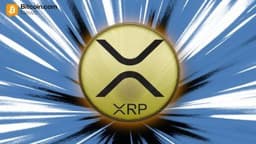- Wallet
- Blockchains



Search
Ethereum (ETH) is an open-source, decentralized blockchain platform that enables developers to build and deploy decentralized applications (dApps) and smart contracts. Created by Vitalik Buterin and launched in 2015, Ethereum introduced the concept of 'programmable money' by allowing developers to write code that runs on the blockchain, unlocking countless possibilities beyond simple transactions. Ethereum's native cryptocurrency, Ether (ETH), is used to pay for transaction fees and computational services on the network. As the foundation for much of the decentralized finance (DeFi) and NFT ecosystems, Ethereum continues to be a leader in blockchain technology, undergoing major upgrades like the shift to Proof of Stake (PoS) to improve scalability, security, and sustainability. With a thriving developer community and extensive infrastructure, Ethereum remains one of the most influential and widely adopted blockchains.
Ethereum (ETH) is a decentralized platform that enables developers to build and deploy decentralized applications and smart contracts. Known as the second-largest blockchain after Bitcoin, Ethereum supports programmable transactions and is widely used in DeFi and NFTs.
Ethereum operates on a blockchain that uses smart contracts—self-executing programs that run on the network. These contracts enable decentralized applications (dApps) and support a variety of use cases, from finance to gaming.
https://ethereum.org/
Ether (ETH) is the native cryptocurrency of Ethereum, used primarily to pay transaction fees and computational costs for running dApps and smart contracts on the network. It also serves as an asset in DeFi protocols.
While Bitcoin is focused on being a digital currency, Ethereum is a programmable blockchain that allows for decentralized applications and smart contracts, which enable more complex functionality and use cases beyond payments.
Ethereum recently transitioned from Proof of Work (PoW) to Proof of Stake (PoS), an upgrade designed to improve scalability, security, and environmental sustainability by reducing the energy-intensive mining process.
Smart contracts are self-executing programs that run on Ethereum's blockchain. They enable secure, transparent, and automated agreements without intermediaries, which has led to the growth of decentralized finance and other innovative applications.
You can buy ETH on most cryptocurrency exchanges and store it in various wallets, including MetaMask, MyEtherWallet, and Trust Wallet, which provide secure storage and easy access to Ethereum-based assets.
Ethereum hosts a wide range of applications, including decentralized exchanges, DeFi protocols like Uniswap and Aave, and NFT marketplaces like OpenSea. It supports a thriving ecosystem of dApps and services.

XRP’s momentum is surging as major ETF filings ignite investor optimism, positioning the crypto as the next heavyweight to enter the institutional spotlight, fueling speculation of a near-term regulatory breakthrough.

Explore Google Trends data and discover the search interest pattern for bitcoin over the past 30 days, 90 days, and 12 months.

In Polymarket’s bustling prediction markets, traders are putting serious money behind JD Vance as the frontrunner for the 2028 U.S. election.

Demand for bitcoin and ethereum in the U.S. has cooled significantly across spot and derivatives markets after the September rally.

XRP is accelerating into global finance’s spotlight as institutional adoption surges, fueled by XRPL innovation, RLUSD expansion, and growing regulatory clarity, with analysts projecting imminent ETF approval and sustained dominance across compliant, high-speed blockchain infrastructure worldwide.
